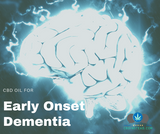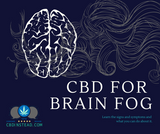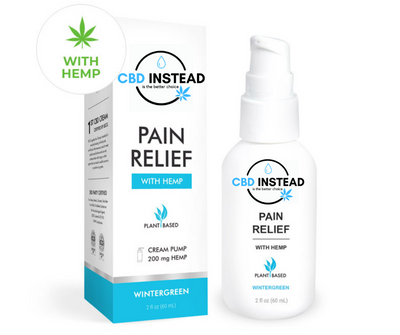Living with chronic pain is exhausting, and if you live through the misery without catching a break, it can lead to depression. There are ways you can make things easier on yourself. Giving yourself a break from pain is a great way to help your body rest, improve your mental health, and improve your quality of life. If you are looking for ways to cope with chronic pain, check out these tips.
Relax
It’s a lot easier said than done, but you need to relax. Pain increases your muscle tension, and when your muscles are tense, they tighten and increase pressure on nerves and pain sites. Relaxation can help you break through the cycle of tension and pain. Two of the easiest ways to help you relax and reduce your pain are by meditating or using hydrotherapy.
Meditation
Ancient remedies were used for a reason, and science is starting to show us why. Deep breathing and meditation have shown to help your body relax which can lead to reduced pain. Mindfulness meditation has shown to achieve pain-relieving effects without engaging the opioid receptors in the brain, making researchers believe that it is a very valid complimentary treatment for chronic pain. It may be difficult to get started when the only thing you can think about in the silence is the pain, but with enough practice, you can get anything done.
When starting your meditation routine, find a quiet and comfortable location. Some people start with going to classes that can make adjustments for people who have chronic pain. Have your body in a comfortable position whether it is sitting or laying down. It’s important that you stay as comfortable as possible so you can avoid any pain that could make the process more difficult. It can be hard to keep distracting thoughts out of your mind, which is why using a guided meditation for the first few times can help you get used to it. Focus on your breathing, follow the instructions in a guided meditation video, soundtrack, or teacher. While focusing on your breathing, you put your attention to your abdomen filling and emptying of air. Doing this process can help your body relax as well as your mind.
Hot Bath

Hydrotherapy is a common complementary therapy for chronic pain that you can do at a clinic, or you can do at home in a hot bath. By being fully submerged in the water, you take the stress and weight off of your muscles and joints; this is called buoyancy. Both hot and cold water have benefits to your body, but some temperatures are better for pain than others. Using cold water at 57 ͦ F and warm water at 68 ͦ F, hydrotherapy can help with increasing your dopamine levels which can help reduce pain as well as decrease cortisol concentration which is the hormone released during stress.
Hydrotherapy can manipulate the way that your body produces chemicals by taking advantage of your reaction to hot or cold water. Hydrotherapy can help boost your immune system, cardiovascular system, and reduce your sensitivity to pain. Because warm water relaxes your muscles and cold water stimulates your mind, taking a hot bath followed by a short cold shower can help your body be relaxed but stimulate your mind.
Natural Chemicals
Your body doesn’t want you to feel pain; it has chemicals that it produces to help prevent you from suffering. These chemicals are called endorphins. You may have heard of this word before when people talk about exercise, but there are plenty of ways to make your body produce these feel-good chemicals. Endorphins are known as neurotransmitters because they transmit electrical signals in the nervous system. There are at least 20 different types of endorphins in the human body, and the most common reason they are released is because of stress and pain.
The way that endorphins work is by interacting with the opiate receptors to reduce your perception to pain and they act similarly to drugs like morphine. The difference is your body doesn’t become addicted to these chemicals like it can on prescription opiates.
Another great thing increasing endorphin production does is giving feelings of euphoria, regulating your appetite, the release of sex hormones, and enhances your immune response. When your endorphins are high, you feel less pain and fewer negative effects from stress. While exercising is a great way to boost your endorphin levels, there are some unique ways to change it up and keep your life exciting and pain-free. Try doing things like:
- Going to your favorite concert
- Making music
- Watch a comedy routine
- Have sex
- Eat chocolate
- Eat spicy food
- Volunteer and be kind
- Learn something new
- Spend time in the sun
Sleep

There is plenty of evidence pointing to an association with sleep and pain which creates a vicious cycle. Pain makes it difficult to sleep because in order to fall asleep your nervous system needs to calm down, but chronic pain causes a much more active nervous system. Waking up in between REM cycles is normal, but people with pain may stay awake for longer making their sleep feel less restful. Not getting enough sleep can cause changes in the body that can make chronic pain worse by making you more sensitive to pain.
Falling asleep isn’t easy, but there are some tips to consider to help you fall asleep and stay asleep.
- Make your room cool
- Invest in a good mattress and pillow
- Make your room dark when you want to sleep
- Don’t read or watch TV in bed
- Make adjustments to your bed or pillow according to your most comfortable sleeping position
- Only go to bed when you are feeling sleepy
- Avoid naps if you don’t need them
- Try to keep a strict sleeping schedule
Alcohol
Not all ancient remedies are that good for you, which is why it’s great that we live in a time of modern science to help guide us. Self-medicating with alcohol for pain and anxiety has been a method ancient kings have used, but today’s science tells us that drinking alcohol can actually make your pain symptoms worse. While drinking can give you relief for a short time, the effects occur when the alcohol exceeds the guidelines for moderate daily use. So if you are doing it every day, you can start to destroy your body.
Using alcohol every day also builds your tolerance, making you need more to get pain relief each time. Using alcohol for long periods has also been linked to causing pain by generating painful small fiber peripheral neuropathy. Cutting out alcohol completely would be ideal. Keep in mind if you have used alcohol to reduce your pain and have grown a dependence, the withdrawal symptoms can be painful making your chronic pain worse.
Cigarettes
If you are smoking cigarettes, here is just another reason to quit. Nicotine greatly affects your heart and lungs making it harder to deliver oxygen to the rest of your body. Smoking cigarettes or using products with nicotine can slow down your healing and increase your heart rate, which can make chronic pain more severe.
If you need to get an implant to help you with your chronic pain, smoking makes it more difficult to fight off any potential infections making you a bad candidate for surgery. But we all know quitting isn’t easy. If it were, no one would be smoking cigarettes because almost everyone knows how bad they are. Many free services can help you quit smoking, and you can even try using CBD oil to quit smoking cigarettes.
Tweak Your Surroundings
At work, at home, at school, all of these places are somewhere that you are going to be for a long time. If you have to bend down to get something three times a day and it is causing your pain to get worse, make adjustments to your home or workplace. If you are somewhere like school or work where you aren’t in complete control of your surroundings, make your needs heard. See if there is something that someone can do to make your everyday life less painful. Make sure to be careful who you disclose this information to because a stigma still exists when it comes to invisible illnesses in the workplace, but remember your needs are just as important as anyone else’s.
CBD for Pain

One way you can cope with pain is by giving yourself some relief through medication. While opiates bring on the danger of addiction and overdosing, using CBD hemp oil for pain doesn’t offer those risks. Studies have also shown that you do not gain a tolerance to CBD like you do many other chemicals used for pain, so you don’t have to end up breaking the bank after using the products for years. You can even pair CBD with complementary therapies for pain like adding CBD bath salts in your bath to help with reducing inflammation or pain relief.
Do you suffer from chronic pain? What are some ways that you help cope with it? We would love to hear your tips in the comment section below!














